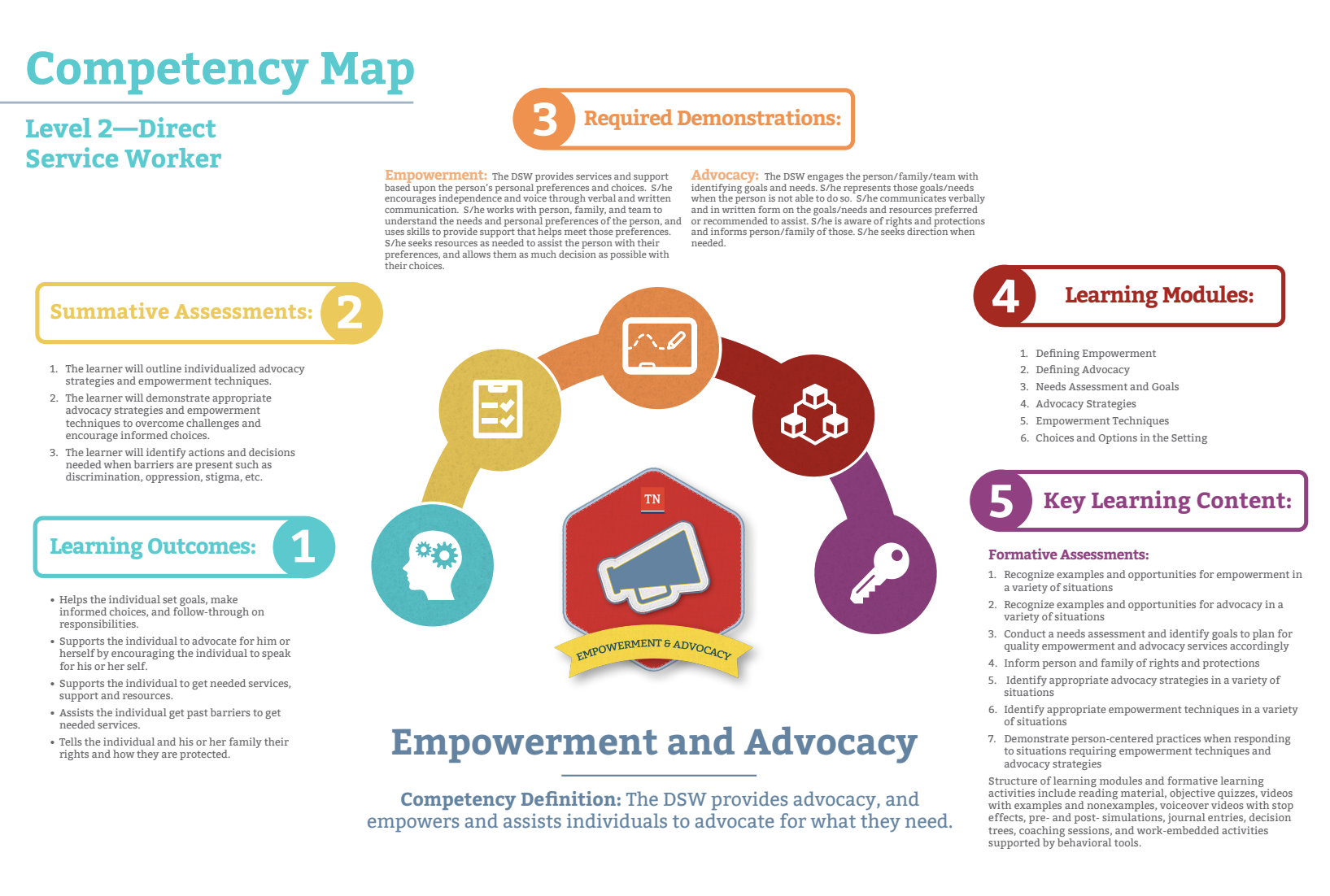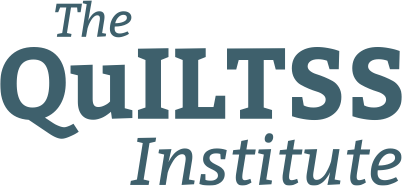Looking to participate in the
Direct Support Professional (DSP)
Learn and Earn Program?
Looking to earn an increase in pay while learning new skills?
Want more confidence in your abilities to do this job?
Working as a direct support professional can be both demanding and rewarding, all at the same time! To do this job well, you need the right knowledge, skills, abilities, and behaviors, known as competencies. The Learn and Earn program is based on 12 essential competencies a DSP needs each day on the job. From learning how to better communicate with the person you support to intervening before a person experiences a crisis, you will learn the competencies needed to get ahead in your career through a combination of online instruction, on the job activities, and one-on-one coaching support.
TennCare has partnered with the Tennessee Board of Regents, The QuILTSS Institute, and your employer to create a workforce development program where you can earn college credit while developing your skill set, both on the job and in a virtual classroom. As you successfully complete coursework and develop your competency set, you will earn higher wages.
The Learn and Earn program is a way you can invest in yourself to advance your career, gain college credit, and develop as a direct service professional.
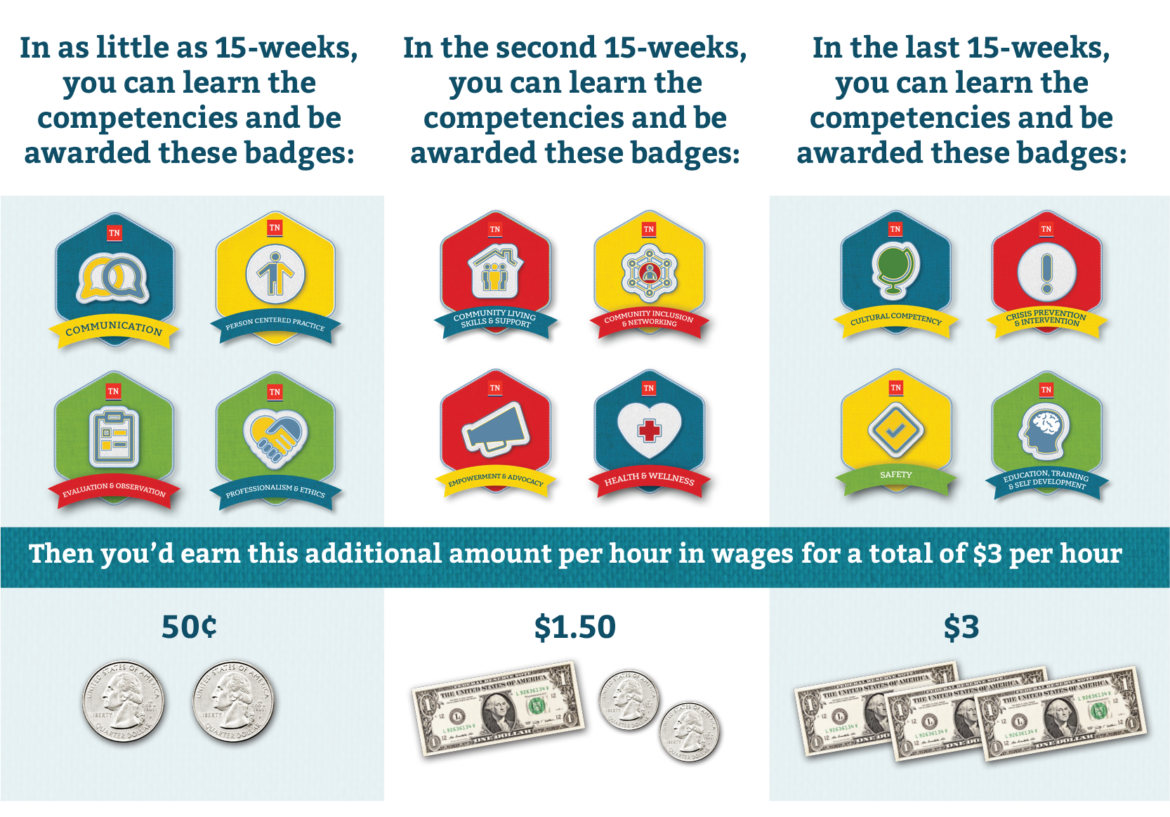
The Learn and Earn coursework is available online and on demand. This means you can complete your studies whenever your schedule allows, whether that’s at 2:00 a.m. or 2:00 p.m.! If you need help, 24-7 tech support is provided so you can make the most of your limited time.
Using Tennessee Promise and Tennessee Reconnect funds, most direct service professionals can complete this coursework completely free of charge, using state and federal financial aid programs.
Additionally, Tennessee Promise and Tennessee Reconnect grants can help you pay towards the QuILTSS certificate worth 18 college credits at participating Tennessee Community Colleges and Colleges of Applied Technology (TCATs). Learn more about the financial aid assistance available to you by contacting a participating college. This a great pathway for those seeking career advancement while working towards a college degree.
It’s as simple as 1, 2, 3!
Step 1: Below is a current listing of Tennessee’s participating Community College and Colleges of Applied Technology.
- Cleveland State Community College
- Dyersburg State Community College
- Jackson Community College
- TCAT-McMinnville
Step 2: Click on your desired college’s link to learn more about how you can enroll in the Learn and Earn program.
Step 3: Complete the coursework and demonstrate your competencies to earn competency badges and increased wages.
Learn and Earn Competency Course Descriptions
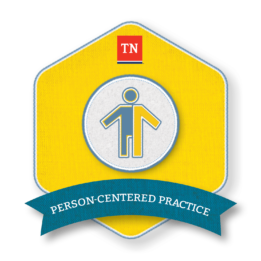
The DSP uses person-centered practices, assisting individuals to make choices and plan goals, and provides services to help individuals achieve their goals. After successfully completing this course, the DSP will be able to:·
- Use person-first language by placing focus on the person rather than disability.
- Communicate with the person supported using methods tailored to the person’s abilities, needs, and preferences, so the person has regular opportunities to discuss and make decisions about his or her daily activities, goals, and supports.
- Support the person to advocate for significant changes in his or her living, working, and community settings and communicate desired changes with the supervisor and team.
- Communicate with the person’s informal and formal community partners regarding the person’s abilities, interests, preferences, and supports the person receives under other agencies to ensure the person’s goals and supports are consistent and complementary across systems and the person’s day.
- Give primary consideration to the person’s expressed preferences and interests by empowering the person to direct and make decisions regarding his or her day-to-day life including what to do, where to go, and who to see.
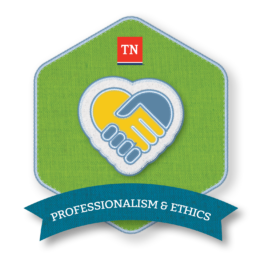
The DSP works in a professional and ethical manner, maintaining confidentiality and respecting individual and family rights. After successfully completing this course, the DSP will be able to:
- Meet organizational requirements including arrives on time for scheduled shifts, wears appropriate attire, practices good hygiene, acts friendly and respectful to others such as greeting people, using respectful language, and knocking before entering a room.
- Perform assigned duties and document as the role requires.
- Communicate respectfully with others including the respect of persons’ rights to make and communicate decisions regarding support and day to day life.
- Assume responsibility and accountability for his or her actions.
- Recognize the rights of others as well as the DSP scope of practice and provide support within these boundaries.
- Recognize and comply with applicable state and federal regulations and standards including the Health Insurance Portability and Accountability Act (HIPPA).
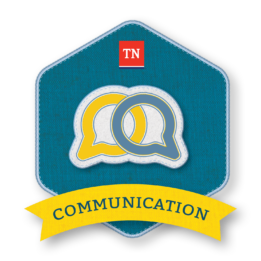
The DSP builds trust and productive relationships with people s/he supports, co-workers and others through respectful and clear verbal and written communication. After successfully completing this course, the DSP will be able to:
- Demonstrate professional communication within the organization and keep confidential information.
- Work with the person supported so s/he has the time and other support needed to receive, consider, understand, and provide nonverbal communication and information.
- Demonstrate that written communications about the person’s support needs reflect consultation with the person and is shared with the person, as appropriate, when it involves his or her supports and services.
- Model professional behavior and empower the person to act professionally in support and planning team meetings.
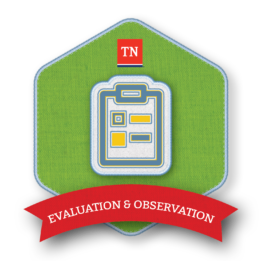
The DSP closely monitors an individual’s physical and emotional health, gathers information about the individual, and communicates observations to guide services. After successfully completing this course, the DSP will be able to:
- Support the person to communicate his or her strengths, abilities, needs, and preferences in the evaluation process.
- Provide objective observations of health, behaviors, settings and other needed evaluation steps including gathering information on antecedents, behaviors and consequences not directly observable for evaluations in environments and among people where the person is most likely to spend time.
- Communicate results and needs for changes to the daily routine or person-centered practices in both verbal and written form.
- Ensure that the person’s goals are consistent with the evaluations performed and, to the maximum extent possible, the person’s preferences and interests.
- Deliver supports to help the person achieve his or her goals consistent with the evaluation(s) performed and in keeping with the person’s desires and interests.
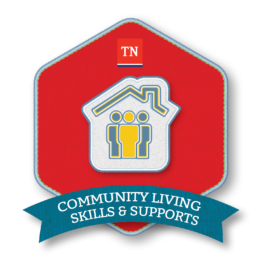
The DSP helps individuals to manage the personal, financial and household tasks that are necessary on a day-to-day basis to pursue an independent, community-based lifestyle. After successfully completing this course, the DSP will be able to:
- Work with the person to identify and communicate abilities, dreams, needs, preferences and goals for community living, and advocates for the team to give primary consideration to the person’s preferences in adapting the support plan to meet them.
- Facilitate the person’s participation in his or her community by ensuring s/he has access to the types of activities, including employment, that are outlined in the goals.
- Provide support based on the person’s dreams and goals for community living, abilities, preferences, and interests, including supporting documentation and the supports needed to meet them.
- Monitor the person’s community living progress and outcomes to ensure that his or her plans and supports remain consistent with his or her abilities, needs, and preferences and represent the best opportunities and approaches to meet them including how to access life in the community.
- Recognize best practices and regulations regarding safety and communicate issues with supervisor as needed.
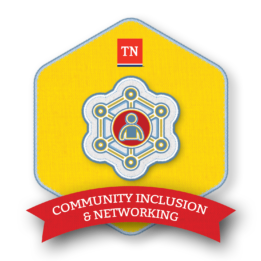
The DSP helps individuals to be a part of the community through valued roles and relationships, and assists individuals with major transitions that occur in community life. After successfully completing this course, the DSP will be able to:
- Communicate and work with the team to seek opportunities available and resources needed for community inclusion based on the person’s specific areas of interest.
- Work with the person and team to monitor progress and outcomes associated with community inclusion and, where appropriate, discover and communicate new preferences and interests.
- Connect people to others and navigate relationships with typical community members in common community settings.
- Communicate in verbal and written form with the person, team, and supervisor regarding participation and outcomes related to community inclusion.
- Deliver services and supports to ensure community inclusion goals and objectives are met.
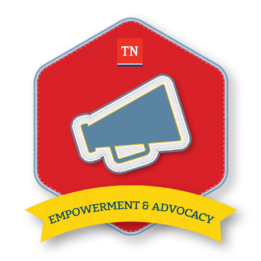
The DSP provides advocacy, and empowers and assists individuals to advocate for what they need. After successfully completing this course, the DSP will be able to:
- Support the person to make his or her own informed decisions and directly communicate those decisions to the team using every possible avenue including assistive technology, sign language, or any other communications vehicle before determining that the individual is not able to do so him or herself.
- Identify common physical, social, and attitudinal barriers that negatively affect the person’s opportunities to reach a goal or perform an activity in a preferred way and respectfully offer to help remove barriers.
- Communicate with the person and use observation to learn about the person’s preferences and interests and incorporate them into the person’s supported decision-making process.
- Recognize organizations that can provide protection, advocacy, and information about rights and provide it to the person and family when appropriate.
- Objectively report DSP performance barriers to the organization including the need for training, availability of records regarding supported persons’ preferences and goals, sufficient support staff, staff coordination, and transportation.
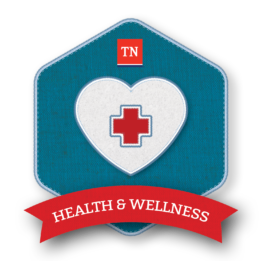
The DSP plays a vital role in helping individuals to achieve and maintain good physical and emotional health essential to their well-being. After successfully completing this course, the DSP will be able to:
- Work with the person and use observation to identify any issues and/or significant changes indicating illness, social, or mental health concerns and take necessary action.
- Practice prevention and control measures such as fall prevention procedures, hand washing, and gloving.
- Support the person to communicate about and give feedback on the effectiveness of health and welfare support.
- Deliver, document, and report support that promotes the well-being of persons served, giving primary consideration to the person’s expressed preferences and interests according to policy and regulations.
- Support the person to make decisions and direct his or her healthcare services, including those that may involve personal risk.
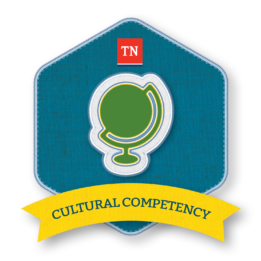
The DSP respects cultural differences, and provides services and supports that fit with an individual’s preferences. After successfully completing this course, the DSP will be able to:
- Identify personal biases and seek to improve cultural awareness and sensitivity.
- Support cultural differences, needs, and preferences through discussion with the person, family, and team and communicate the need to formal partners and providers as available and appropriate.
- Work with the person, family, and team to identify community events and activities unique to the person and family culture for cultural activities including social, learning and recreational opportunities.
- Support the person to communicate cultural preferences with the team and formal partners and to incorporate those preferences into his or her goals, plans, and services.
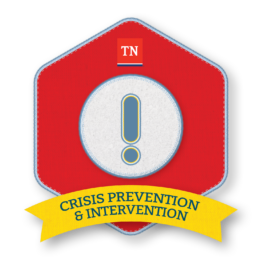
The DSP identifies risk and behaviors that can lead to a crisis, and uses effective strategies to prevent or intervene in the crisis in collaboration with others. After successfully completing this course, the DSP will be able to:
- Recognize and discuss areas of health and safety that may be considerations for crisis situations.
- Communicate with the person and, where appropriate, family to identify the person’s risk factors for a crisis and work with the team to develop and implement plans to minimize these risk factors for a crisis.
- Identify and follow policies, procedures, and regulations related to crisis prevention and intervention approaches.
- Use communication, observation and evaluation to monitor behaviors, the environment, routines, and outcomes to ensure plan effectiveness or the need for changes.
- Recognize organizations and agencies that can provide protective or advocacy services in a crisis and contact them as appropriate to address a crisis.
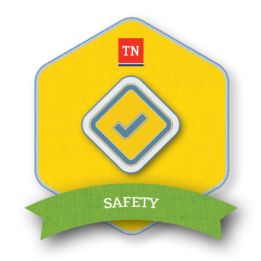
The DSP is attentive to signs of abuse, neglect or exploitation and follows procedures to protect an individual from such harm. S/he helps people to avoid unsafe situations and uses appropriate procedures to assure safety during emergency situations. After successfully completing this course, the DSP will be able to:
- Recognize, document, and communicate the signs and symptoms of abuse, exploitation, and health concerns such as stroke, heart attack, choking, breathing problems, allergic reactions, dehydration, heat exhaustion, seizures, injuries, shock, food poisoning, concussions, mental health crises, and infections according to best practices, policy, and regulatory requirements.
- Communicate staffing shortages immediately that limit capacity to implement emergency plans and procedures.
- Implement plans and supports that prevent and/or minimize safety risks, giving primary consideration to the person’s preferences, and coordinate the environment to reduce stress and facilitate healthy behaviors like sleep, hygiene, eating, and exercise.
- Recognize and implement best practices according to policy, procedures, regulation, and civil procedures with emergency, hazardous, and disastrous situations such as an emergent health event, structural fire, tornado, wildfire, hurricane, unhealthy air quality, lock down, power outages, loss of water, loss of heat, or evacuation.
- Work with the person to learn his or her preferences for how to react and support him or her in crisis situations and, to the maximum extent possible, provide emergency support consistent with his or her preferences.
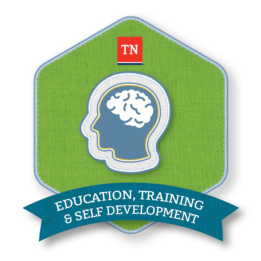
The DSP obtains and maintains necessary certifications, and seeks opportunities to improve their skills and work practices through further education and training. After successfully completing this course, the DSP will be able to:
- Seek professional development as an opportunity to improve job performance, job security, as well as personal and professional growth and advancement.
- Develop an action plan to pursue professional development and seek help to define goals and action steps as needed.
- Complete trainings as requested and identify further education and training needs.
- Ask others such as supervisor for support to successfully complete trainings including technical support.
- Apply knowledge and skills learned from training in his or her daily work that is consistent with supported persons’ abilities, needs, and preferences.
